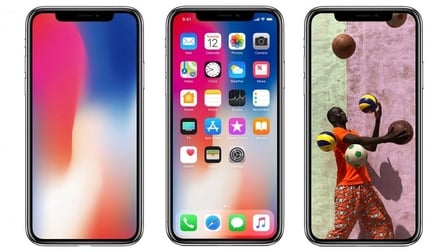As we’ve all seen, and seen incessantly, one of the big selling points of Apple’s iPhone X is its facial recognition feature that replaces the fingerprint ID sensor for accessing the phone. The graphical identification function was billed as a superior method of identifying the phone’s user, providing a near foolproof security feature. The logic Apple gave was that the fingerprint sensor merely identified the owner of the phone, but the facial recognition feature “authenticates” the user/owner – whatever that means. We’ve not heard a logical explanation of this concept to date; I suspect one will not be forthcoming.

Another well-known fact is Apple users tend to embrace any feature the company creates, no matter how expensive or esoteric, with blind faith of a level any self-respecting mystic would be amazed at. Each new offering is met with hordes of biblical proportion lining up several days in advance of a “new product” launch to buy the latest incarnation or reincarnation of an Apple device. Based on this, it may be a somewhat sour pill to swallow when certain research claims Apple users are not be so eager to use of the company’s much hyped feature: facial recognition.
According to a Juniper research survey that polled 500 US and 500 UK smartphone users about mobile banking and contactless payments, 74% of US and 62% of UK users preferred fingerprint sensors and voice recognition over facial recognition for authentication. Of that sample of the population, Juniper Research finds over 40% of iOS users in the US are rejecting facial recognition as a security technology. This may pose serious impedance to iPhone X’s big security/selling feature, perhaps.
Surveys can be very misleading if one just accepts the surface findings. On the surface, and the way it is promoted, the Jupiter research could mislead one into thinking users are completely rejecting Apple’s facial recognition technology, which, if true, would negatively impact sales of the iPhone X to some degree. However, the real focus is on using facial recognition for contactless banking and other financial transactions, which obviously are not the responsibility of Apple.
Apple merely offers facial recognition technology as a means of authenticating the user for access to the phone. Yes, it does so in a sophisticated, state-of-the art manner with high-res imaging that employs unique optical sensors and lighting topologies. Yes, the imaging technology can record and display the user’s face for transactions. But it’s the financial establishment’s facial recognition technology that needs to be accurate and secure to ensure safe transactions. The only thing Apple needs to worry about here are survey findings that are worded “semi artistically”. ~MD